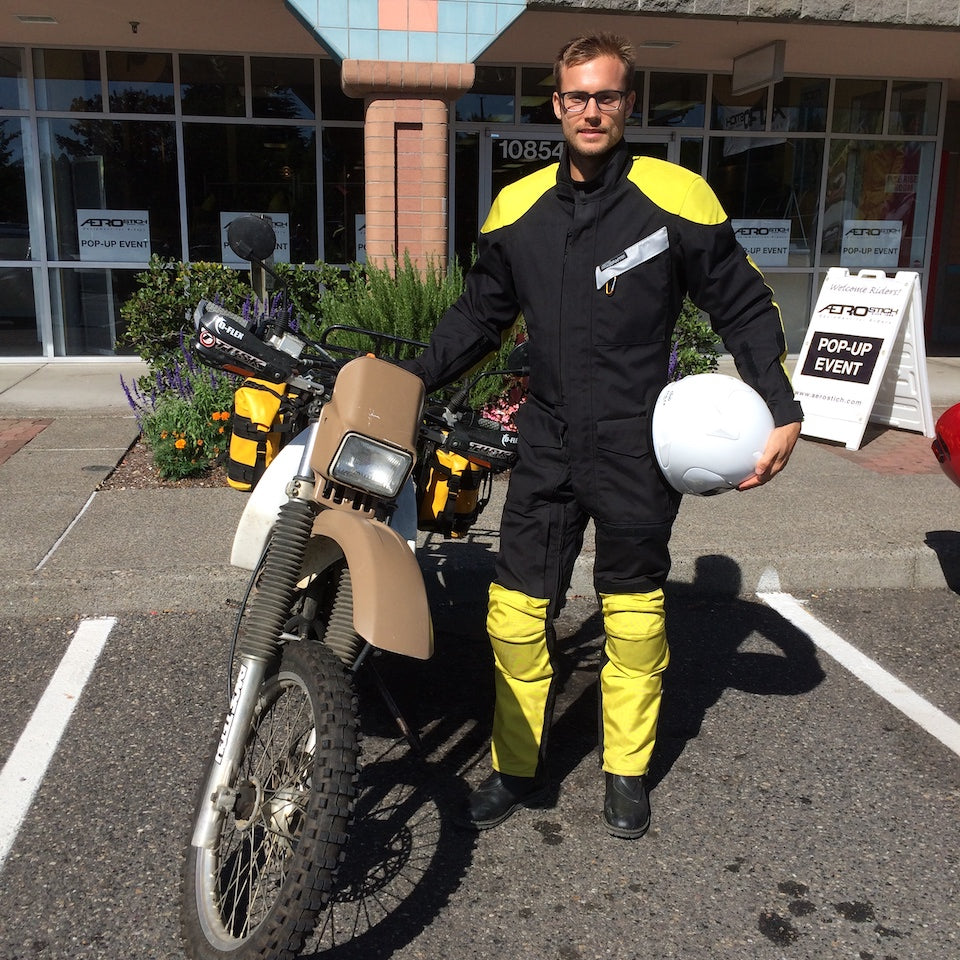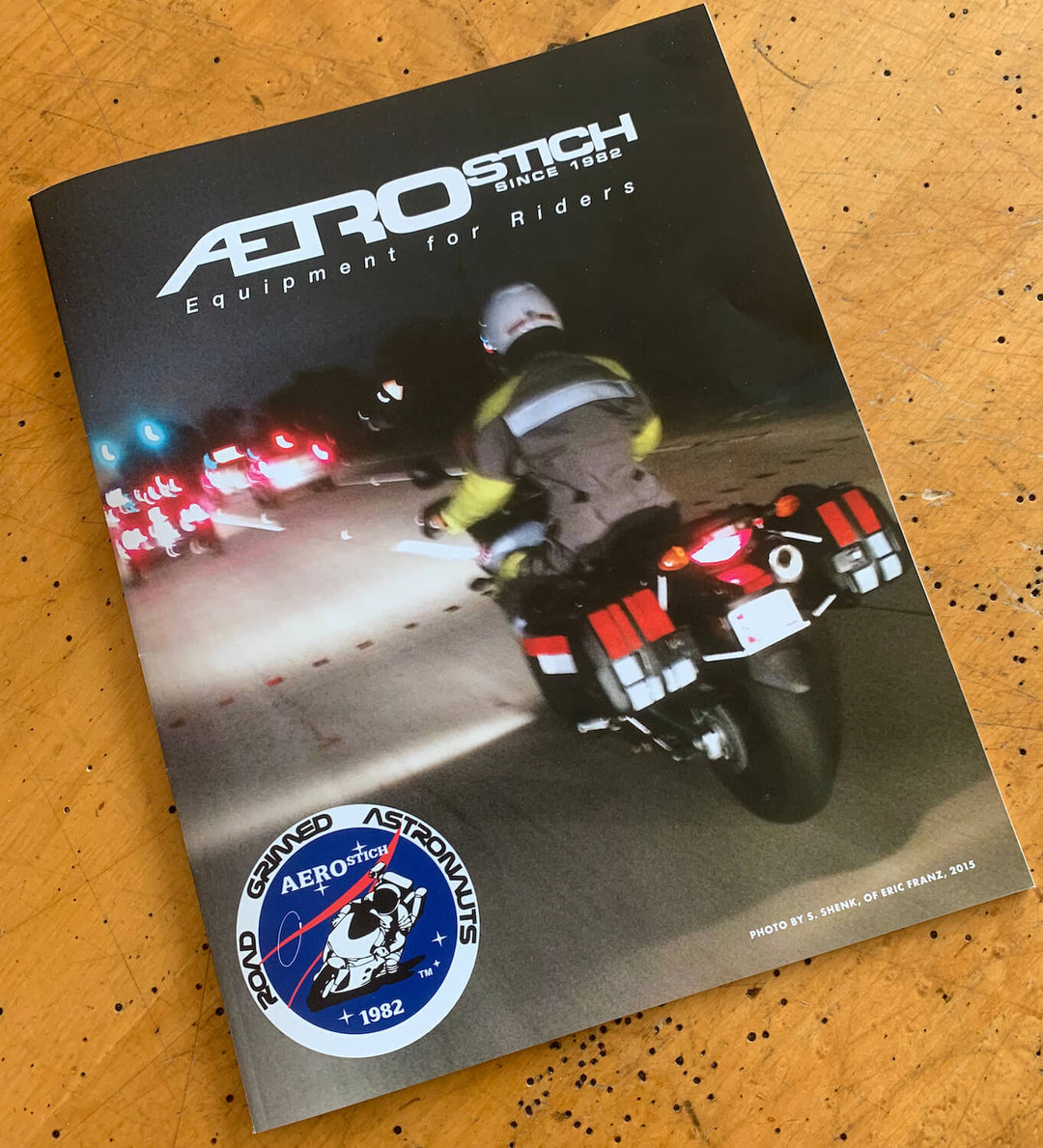Verschlimmbessern
German verb, loose translation:
To make something worse by trying to improve it.
Long a favorite word of mine, though I've never known exactly how to pronounce it or use it in any actual conversation. Two forms, verb and noun version, neither of which I know how to say or use. But in our modern world, as we get older we become aware of more and more examples of it from life and the things around us. I've thought quite a bit about this.
It’s sure true for me when this involves stuff like blue jeans and hopefully also one piece riding suits. I’m fairly convinced that wherever and whenever new technology gives us something, it always takes away something else. (If this wasn’t true, most philosophers would be out of work. Wait. Most are out of work...uhh.)
For example, fuel injected motorcycles start and drive better, and get better mileage. But they are not as easy to hands-on tune without specialized tools compared to a carbureted bike. And the engines they feed don’t quite kick and snort in an almost animalistic way sometimes, like a (forever slightly imperfectly) carbureted engine does. And injection costs more to produce and operate when everything involved from raw materials upward is considered. Carbs are simple, elemental, and difficult to improve in certain ways, just like a hand-spun wool sweater or flint-knapped knives. Some of those flint blades can actually be measurably sharper than today's very best and sharpest surgical scalpels.
It’s very hard to think of an example of a technology that does not take away just about as much as it gives. What makes an 'improvement' seem to be so involves our priorities as the consumers of whatever the technology in question is. We value easier starting, smoother running and more fuel-efficient engines a whole lot more than what is provided by carburetors.
The consumer economy loves a product that sells at a premium, wears out quickly or is susceptible to regular improvement, and offers with each improvement some marginal gain in usefulness.
Novelist Johnathan Franzen, Atlantic Monthly, April 1996
With blue jeans, it’s not so easy or clear cut. Does the decorative stitching applied increase the aesthetic appeal of a pair of designer jeans improve the level of attention paid to the shapes and contours of our bottoms, and in ways that benefit us? I think the answer involves our individually unique desires and objectives about how we want to present ourselves a certain way to those around us. In other words, fashion. AKA: Coolness. Style.
Personally, I’ve generally presented myself to those around me more-or-less as a ‘purist’, ‘classicist’ and ‘truth seeker’, so I enjoy wearing plain original Levi’s 501s. But others have very legitimate and different goals when it comes to their jeans, so for them decorative stitching is an improvement which provides more than it takes away. Art (in this example, decorative stitching) can enhance and improve things in the service of utility when the way such things are defined is opened wide enough.
Thus we have all the annually “improved” and redesigned versions of textile armored rider’s gear. You don’t see this when it involves classic black leather ‘biker’ jackets or basic denim jeans, and there is a reason. The market doesn’t want them new or improved. But there’s always a strong audience for people who enjoy chasing the latest-greatest whatever, whether it involves breakfast cereals, number 2 pencils, laundry soaps, computers or motorcycles and riders’ gear. In our view, armored textile ‘high tech’ riding gear isn’t like computers and motorcycles. It’s a bit closer to a good nutritious breakfast cereal or a well-made pencil. When we started making armored textile gear it was a new kind of gear for serious daily commuters and long-distance traveling riders. It still is.
-- Mr. Subjective

The Aerostich Roadcrafter was an all-new type of rider's gear introduced in 1983 - the world's first lightweight armored all-weather coverall intended to be worn over street clothing.
The Roadcrafter, R-3, Darien and AD1 are embodiments of an original recipe which virtually all of today's "high tech" gear was derived from. There were no existing reference points when these garments were created, which is one reason why they are light and simple compared to the universe of derived copies.
Dictionary stuff, found on the internet:
Components – schlimm (fatal) + verbessern (improve) Verb that describes the attempt to improve or repair something and only making it worse in the process. Think of repairing bicycles and nuclear submarines with Scotch® tape. Whether "Trust me, I'm an engineer" or "There, I fixed it", these memes can all be summarized with this beautiful German verb. And it doesn’t just refer to honorable, but futile, DIY endeavors.
Fractured phonetic pronunciation: 'Fair-shlim-bes-sen' or 'Ver-slim-bes-son'
Fractured English usage of the verb form: "He is going to fair-shlim-beson that bike's rear suspension if he tries to do much more to it than has already been done."
Fractured English usage of the noun form: "My new one-piece rider’s suit (or a Darien 'adventure suit' purchased from any manufacturer other than Aerostich) is a ver-lim-bes-son’d R-3 Stich’ (or Darien suit). Why did I buy it?"






















I can guarantee you that this is a word – in the Duden which makes it official – and its in usage. Direct from Berlin (not Wisconsin, dieser in Deutschland)
PS Compound words are legit, and this one is 100% straight up legit.
I had a fairly intensive discussion of the work today with a native German speaker about the word. She came here many years ago and didn’t recognize it. She said it seemed to be a newish word or possibly not from the area that she’s from. Apparently, there are strong dialects and regional words. Anyway, the word seems to be a compound word it it made up of a word meaning either “to improve” or “having a good intention while doing an action”. It seems to fall more on the intention side. That part was hard for me to parse. The word for “worse” is kind of stuck in there making it a compound word like “policewoman” or “snowball” It’s a real word but probably a newish word. The letter “r” seems to be just stuck on the end for no real reason. So, it kind of works out like “an action of good intention that has makes a bad result”. Since we’re librarians we looked this all up on reputable German web resources.
Leave a comment